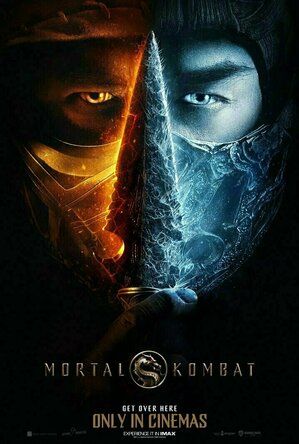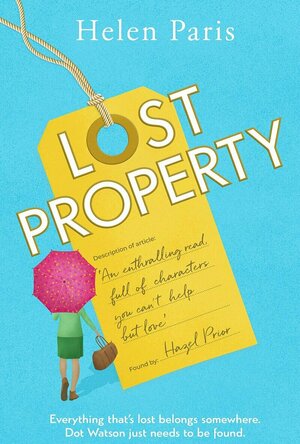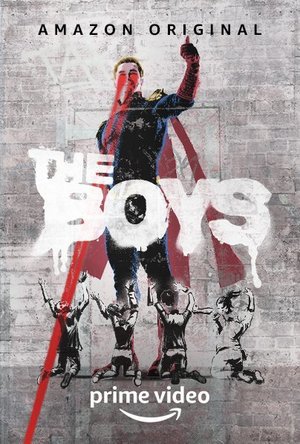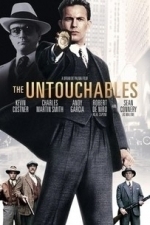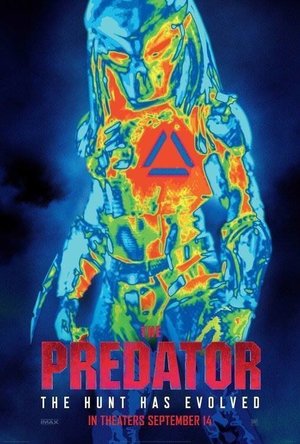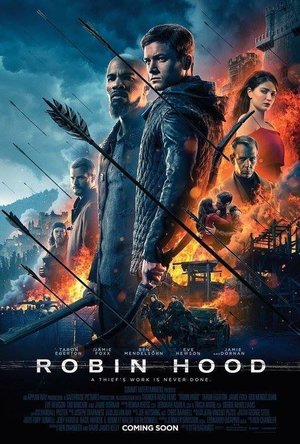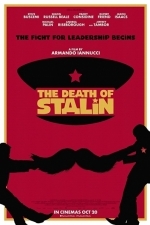Search
Search results
Jesters_folly (230 KP) rated Mortal Kombat (2021) in Movies
May 23, 2021
Contains spoilers, click to show
Mortal Kombat is one of those films that doesn't seem to know what story it wants to tell, it starts with a grudge battle between a proto Sub Zero and Proto Scorpion then jumps to the modern times with Sub-Zero hunting a young fighter, Cole Young. Then it (kind of) switches back to the Scorpion/Sub-Zero grudge match.
The bulk of the movie follows Cole as he joins up with Sonya Blade to find a group of 'Earths Champions' in an attempt to stop a secret invasion from Outworld. The hero's are, of course various characters from the 'Mortal Kombat' video games and a lot of the film is just looking for excuses to for the characters to shout out one liners from the games.
This isn't to say that Mortal Kombat is a bad movie, it has good fight scenes and the relationship between Sonia and Kano lead to some of the funniest moments of the movie. In fact I would go as far as saying that Kano is the best character of the film, a tough job seeing as he seems to be there for the comic relief.
There is a lot of time put into the put into the human characters but almost nothing to the villains, the most we find out about them is that Kabal seems to be a human and that Kano put him in his suit, there is no back story to this, no information a to how he ended up on outworld and, puzzlingly he seems to want to Kano to join up with his team.
I felt that there was something disappointing about the ending (HERE BE SPOILERS)..... All through the film we are told that Cole is the last of Hanzo Hasashi's (Scorpion) blood line (even though Cole has a daughter so she should be the last), he's given Hanzo's weapon and is being set up to become Scorpion. Then suddenly Hanzo is back, as Scorpion and all but saves the day. I know the film has the law of the games to follow but building one character up and then just re introducing someone else to all but take his place just feels like a cheat, especially as most of the film is about finding the power within and using it to win.
Saying all that Mortal Kombat is a good film, it has action and humour and some quite graphic 'Brutalities'. I think part of the problem is the 1995 Mortal Kombat film which feels a lot more fun, it doesn't have all the blood but it has a simple story, the villains seem slightly more rounded and the soundtrack just works. Also, and I know there is a big push to have actors of the 'correct' ethnicity I really do think that Christopher Lambert was a better 'Lord Rayden', Tadanobu Asano, who plays the character in this version seems bland and emotionless. I think that even an elder god would get worked up if evil forces were trying to invade his realm, especially if the invaders were breaking the rules.
The effects are good although some charters seem to have more attention than others (Sub-Zero, I'm looking at you) and there could have been more attention spent to the 'Evil' characters but, over all the film works with few problems.
The bulk of the movie follows Cole as he joins up with Sonya Blade to find a group of 'Earths Champions' in an attempt to stop a secret invasion from Outworld. The hero's are, of course various characters from the 'Mortal Kombat' video games and a lot of the film is just looking for excuses to for the characters to shout out one liners from the games.
This isn't to say that Mortal Kombat is a bad movie, it has good fight scenes and the relationship between Sonia and Kano lead to some of the funniest moments of the movie. In fact I would go as far as saying that Kano is the best character of the film, a tough job seeing as he seems to be there for the comic relief.
There is a lot of time put into the put into the human characters but almost nothing to the villains, the most we find out about them is that Kabal seems to be a human and that Kano put him in his suit, there is no back story to this, no information a to how he ended up on outworld and, puzzlingly he seems to want to Kano to join up with his team.
I felt that there was something disappointing about the ending (HERE BE SPOILERS)..... All through the film we are told that Cole is the last of Hanzo Hasashi's (Scorpion) blood line (even though Cole has a daughter so she should be the last), he's given Hanzo's weapon and is being set up to become Scorpion. Then suddenly Hanzo is back, as Scorpion and all but saves the day. I know the film has the law of the games to follow but building one character up and then just re introducing someone else to all but take his place just feels like a cheat, especially as most of the film is about finding the power within and using it to win.
Saying all that Mortal Kombat is a good film, it has action and humour and some quite graphic 'Brutalities'. I think part of the problem is the 1995 Mortal Kombat film which feels a lot more fun, it doesn't have all the blood but it has a simple story, the villains seem slightly more rounded and the soundtrack just works. Also, and I know there is a big push to have actors of the 'correct' ethnicity I really do think that Christopher Lambert was a better 'Lord Rayden', Tadanobu Asano, who plays the character in this version seems bland and emotionless. I think that even an elder god would get worked up if evil forces were trying to invade his realm, especially if the invaders were breaking the rules.
The effects are good although some charters seem to have more attention than others (Sub-Zero, I'm looking at you) and there could have been more attention spent to the 'Evil' characters but, over all the film works with few problems.
Lottie disney bookworm (1056 KP) rated Lost Property in Books
Jul 2, 2021
Dot Watson works in the TfL Lost Property office, meticulously labelling items found on London’s public transport in the hope of reuniting them with their owner. However, it soon becomes apparent that it is Dot who is lost, grieving the loss of her father to suicide, her mother to dementia and her ever-deteriorating relationship with her sister.
What isn’t initially clear is why Dot feels guilt-ridden by her father’s suicide but Paris carefully peels back the layers of Dot and her family’s lives to expose their loss, their love and their vulnerability.
Dot herself is fastidious in details, finding safety in rules, routine and order. Her safe words (Sellotape, safety pin, superglue) echo through the novel with no real context except to calm Dot, to allow her to keep everything together and in place. In contrast to this, Dot is clearly falling apart.
Dot’s life is already poles apart from what she envisioned for herself but circumstances cause her to fall further and start looking for an escape: an escape that she finds amongst the stacks of unclaimed items, with a little help from a bottle of absinthe!
Dot’s hallucinations do cause moments of humour but more than this they portray her raw grief and her depression. Dot tries to find a story behind every item in the stacks, to give the item an identity, an owner, a purpose. But what she is really looking for is her identity, her purpose. She passionately fights for these items, believing that their worth surpasses monetary value, but she cannot apply this to herself until it is almost too late.
The characters surrounding Dot serve to reflect how isolated she has made herself.
Our protagonist has few friends in her social circle and those that she does have seem to be work friends, in whom she often finds criticism. I really appreciated the roles of characters such as Anita, she never stopped inviting Dot to events even when Dot had refused several times before. Anita is the perfect model for a friend of someone with depression: keep showing up, keep listening and never give up.
Dot’s mother, Gail, has dementia and has recently moved out of the maisonette she shared with Dot and into a care home. The relationship between mother and daughter has never been as close as the bond Dot had with her father but Dot’s memories of her mother slowly unfurl into the recognition and acceptance of her as a person and a protector, rather than the background character she has always assumed her mother to be.
Dot’s sister Philippa seems to be a bit of a steamroller of a character at first, bossy and controlling in that she plans to sell the maisonette and thus make Dot homeless. However, Philippa finds her spotlight in the final few chapters, perhaps because Dot allows herself to see her sister properly and acknowledge the life and pain that they both shared. The resulting love between the two sisters is heart-warming.
Lost Property is heart-breakingly honest and open. I laughed and, as someone coming to terms with a dementia diagnosis within the family, I cried my little heart out. I frankly couldn’t believe Lost Property is Helen Paris’ debut novel. This is the most emotive book I have read this year.
Thank you to Bookstagrammers.com, Helen Paris and Penguin Random House UK for gifting me a hard copy of this book in exchange for an honest review.
What isn’t initially clear is why Dot feels guilt-ridden by her father’s suicide but Paris carefully peels back the layers of Dot and her family’s lives to expose their loss, their love and their vulnerability.
Dot herself is fastidious in details, finding safety in rules, routine and order. Her safe words (Sellotape, safety pin, superglue) echo through the novel with no real context except to calm Dot, to allow her to keep everything together and in place. In contrast to this, Dot is clearly falling apart.
Dot’s life is already poles apart from what she envisioned for herself but circumstances cause her to fall further and start looking for an escape: an escape that she finds amongst the stacks of unclaimed items, with a little help from a bottle of absinthe!
Dot’s hallucinations do cause moments of humour but more than this they portray her raw grief and her depression. Dot tries to find a story behind every item in the stacks, to give the item an identity, an owner, a purpose. But what she is really looking for is her identity, her purpose. She passionately fights for these items, believing that their worth surpasses monetary value, but she cannot apply this to herself until it is almost too late.
The characters surrounding Dot serve to reflect how isolated she has made herself.
Our protagonist has few friends in her social circle and those that she does have seem to be work friends, in whom she often finds criticism. I really appreciated the roles of characters such as Anita, she never stopped inviting Dot to events even when Dot had refused several times before. Anita is the perfect model for a friend of someone with depression: keep showing up, keep listening and never give up.
Dot’s mother, Gail, has dementia and has recently moved out of the maisonette she shared with Dot and into a care home. The relationship between mother and daughter has never been as close as the bond Dot had with her father but Dot’s memories of her mother slowly unfurl into the recognition and acceptance of her as a person and a protector, rather than the background character she has always assumed her mother to be.
Dot’s sister Philippa seems to be a bit of a steamroller of a character at first, bossy and controlling in that she plans to sell the maisonette and thus make Dot homeless. However, Philippa finds her spotlight in the final few chapters, perhaps because Dot allows herself to see her sister properly and acknowledge the life and pain that they both shared. The resulting love between the two sisters is heart-warming.
Lost Property is heart-breakingly honest and open. I laughed and, as someone coming to terms with a dementia diagnosis within the family, I cried my little heart out. I frankly couldn’t believe Lost Property is Helen Paris’ debut novel. This is the most emotive book I have read this year.
Thank you to Bookstagrammers.com, Helen Paris and Penguin Random House UK for gifting me a hard copy of this book in exchange for an honest review.
Sarah (7800 KP) rated The Boys - Season 2 in TV
Oct 10, 2020
Excellent, but not quite as good as the first
For me, the first series of The Boys was a brilliant surprise and the wait for this second series has been a rather frustrating and impatient experience, especially as Amazon decided not to release the entire series at once. Fortunately by the time the credits rolled on the series 2 finale, it was definitely worth the wait.
This second series follows on from the reveal at the end of the series 1 finale, and features more dodgy supes and the Boys trying to take down both them and Vought.
Series 2 is very similar to the first. It’s just as rude and crude as before, full of dark and often hilarious humour and the blood and gore ante seems to have been upped considerably. It definitely provides a refreshing change to the Marvel universe and the majority of other superheroes that stick to their PG or 12A ratings. This has a very smart and funny take on politics and also on pop culture and the media, and even superhero films don’t escape this unscathed when we see The Seven making their own movie.
The cast are as fantastic as they were in the first series. Antony Starr is outstanding as Homelander, playing the homicidal maniac with some semblance of a heart – after 2 series I think I both love and hate him in equal parts, he’s such a complex character. It was very nice to see Dominique McElligott get more to work with as Maeve as well and to see more depth to her character. The rest of the cast and the new additions do very well too - Goran Visjnic, Shawn Ashmore and Jim Beaver are especially welcome, and it was very clever of Eric Kripke to name Beaver’s character as Robert Singer, the same name as his character from Supernatural.
Despite this, I don’t think this series is perfect and I do think it’s a slight baby step down from the rather excellent first series. Some of the episodes feel like they drag a little, although they do end up picking up towards the end (usually with a bang). The final two episodes definitely try and make up for this and I think the finale itself was especially good as we get to see Stormfront get her much deserved comeuppance. I also think some of the interactions between Starlight and the other characters are slightly badly scripted and feel a little forced and cringeworthy, but I’m not entirely sure if this is on purpose to show how awkwardly Starlight interacts with others.
The Deep has also been done a disservice in this series. He starts off brilliantly and the scene with the whale in the third episode is downright genius, however as the series moves on we see less and less of him and he’s sorely missed. Admittedly when he does pop up in the later episodes he has some cracking lines, but it’s not enough. I also think that Shawn Ashmore as Lamplighter was fantastic for the brief time we saw him, and I really wish he’d been kept around for much longer.
The Boys series 2 is overall a very good series that for the most part lives up to it’s predecessor and after the final few scenes in episode 8, definitely leaves us crying out for more.
This second series follows on from the reveal at the end of the series 1 finale, and features more dodgy supes and the Boys trying to take down both them and Vought.
Series 2 is very similar to the first. It’s just as rude and crude as before, full of dark and often hilarious humour and the blood and gore ante seems to have been upped considerably. It definitely provides a refreshing change to the Marvel universe and the majority of other superheroes that stick to their PG or 12A ratings. This has a very smart and funny take on politics and also on pop culture and the media, and even superhero films don’t escape this unscathed when we see The Seven making their own movie.
The cast are as fantastic as they were in the first series. Antony Starr is outstanding as Homelander, playing the homicidal maniac with some semblance of a heart – after 2 series I think I both love and hate him in equal parts, he’s such a complex character. It was very nice to see Dominique McElligott get more to work with as Maeve as well and to see more depth to her character. The rest of the cast and the new additions do very well too - Goran Visjnic, Shawn Ashmore and Jim Beaver are especially welcome, and it was very clever of Eric Kripke to name Beaver’s character as Robert Singer, the same name as his character from Supernatural.
Despite this, I don’t think this series is perfect and I do think it’s a slight baby step down from the rather excellent first series. Some of the episodes feel like they drag a little, although they do end up picking up towards the end (usually with a bang). The final two episodes definitely try and make up for this and I think the finale itself was especially good as we get to see Stormfront get her much deserved comeuppance. I also think some of the interactions between Starlight and the other characters are slightly badly scripted and feel a little forced and cringeworthy, but I’m not entirely sure if this is on purpose to show how awkwardly Starlight interacts with others.
The Deep has also been done a disservice in this series. He starts off brilliantly and the scene with the whale in the third episode is downright genius, however as the series moves on we see less and less of him and he’s sorely missed. Admittedly when he does pop up in the later episodes he has some cracking lines, but it’s not enough. I also think that Shawn Ashmore as Lamplighter was fantastic for the brief time we saw him, and I really wish he’d been kept around for much longer.
The Boys series 2 is overall a very good series that for the most part lives up to it’s predecessor and after the final few scenes in episode 8, definitely leaves us crying out for more.
Sarah (7800 KP) rated The Untouchables (1987) in Movies
Dec 16, 2020 (Updated Dec 16, 2020)
A little melodramatic
(not) Film #7 on the 100 Movies Bucket List: The Untouchables
As with most of the films on this list, The Untouchables is a film that has garnered a great deal of acclaim over the years, and yet if I’ve ever seen it, I’m ashamed to admit that I don’t remember it.
The Untouchables (1987) was directed by Brian De Palma and stars Kevin Costner as Eliot Ness, a treasury agent who recruits a group of fellow cops and agents to take down mob boss Al Capone (Robert De Niro) in Prohibition-era Chicago, with Ness and his agents soon becoming known as the “untouchables” after refusing large bribes. Sean Connery, Andy Garcia and Charles Martin Smith make up the rest of the Untouchables.
An American gangster film is a dime a dozen, there have been countless over the years and the 1920s and 30s are always featured fairly heavily, no doubt due to the large number of criminal gangs and mobsters around in that era. Personally whilst The Untouchables is a good film, I don’t think there’s a lot in this to make it particularly notable or outstanding above any of the others. It’s engaging and interesting, which it should be considering the subject matter – it is based on a true story after all. The entire production looks great too; the sets, costumes and locations are very well done and definitely look the part.
The issue with The Untouchables is it’s too melodramatic, too over the top and clichéd. This isn’t helped by Ennio Morricone’s score, which feels far too heavy handed, cheesy and out of place for the scenes. Even the open title credits is ridiculously over dramatic. You can definitely tell this film was made in the 80s and I’m afraid that’s not a good thing. There’s also some questionable acting from Kevin Costner, and while admittedly I’ve never been a big fan of his, the script and some of the almost cringeworthy scenes with Ness’s wife don’t help matters. And De Niro’s Capone pops up in scenes that feel rather random and forced during the first hour, and seem completely out of place with the rest of the story.
Despite this, The Untouchables is still fairly enjoyable and this is mostly due to Sean Connery’s Malone, the role that he won his only Oscar for. The Irishman, despite sounding very Scottish, injects some much needed heart, humour and spirit into the film and without him, this would have been a very lacklustre film indeed. Even Connery’s horrific Irish accent is a source of amusement, and without the character having been described as Irish, I would’ve just assumed he was Scottish.
Overall, I found The Untouchables to be a decent and entertaining gangster film as long as you can ignore the melodramatic overtones. But I’m not convinced that it’s anything memorable or above average, and if it even deserves a place on this list.
Update: So after having watched this film and headed to my Bucket List to scratch it off, I realised that the film on this list is actually The Intouchables, a French film from 2012 also known as Untouchable. Oops. So I’m afraid The Untouchables isn’t number 7 ticked off my bucket list after all 😆
As with most of the films on this list, The Untouchables is a film that has garnered a great deal of acclaim over the years, and yet if I’ve ever seen it, I’m ashamed to admit that I don’t remember it.
The Untouchables (1987) was directed by Brian De Palma and stars Kevin Costner as Eliot Ness, a treasury agent who recruits a group of fellow cops and agents to take down mob boss Al Capone (Robert De Niro) in Prohibition-era Chicago, with Ness and his agents soon becoming known as the “untouchables” after refusing large bribes. Sean Connery, Andy Garcia and Charles Martin Smith make up the rest of the Untouchables.
An American gangster film is a dime a dozen, there have been countless over the years and the 1920s and 30s are always featured fairly heavily, no doubt due to the large number of criminal gangs and mobsters around in that era. Personally whilst The Untouchables is a good film, I don’t think there’s a lot in this to make it particularly notable or outstanding above any of the others. It’s engaging and interesting, which it should be considering the subject matter – it is based on a true story after all. The entire production looks great too; the sets, costumes and locations are very well done and definitely look the part.
The issue with The Untouchables is it’s too melodramatic, too over the top and clichéd. This isn’t helped by Ennio Morricone’s score, which feels far too heavy handed, cheesy and out of place for the scenes. Even the open title credits is ridiculously over dramatic. You can definitely tell this film was made in the 80s and I’m afraid that’s not a good thing. There’s also some questionable acting from Kevin Costner, and while admittedly I’ve never been a big fan of his, the script and some of the almost cringeworthy scenes with Ness’s wife don’t help matters. And De Niro’s Capone pops up in scenes that feel rather random and forced during the first hour, and seem completely out of place with the rest of the story.
Despite this, The Untouchables is still fairly enjoyable and this is mostly due to Sean Connery’s Malone, the role that he won his only Oscar for. The Irishman, despite sounding very Scottish, injects some much needed heart, humour and spirit into the film and without him, this would have been a very lacklustre film indeed. Even Connery’s horrific Irish accent is a source of amusement, and without the character having been described as Irish, I would’ve just assumed he was Scottish.
Overall, I found The Untouchables to be a decent and entertaining gangster film as long as you can ignore the melodramatic overtones. But I’m not convinced that it’s anything memorable or above average, and if it even deserves a place on this list.
Update: So after having watched this film and headed to my Bucket List to scratch it off, I realised that the film on this list is actually The Intouchables, a French film from 2012 also known as Untouchable. Oops. So I’m afraid The Untouchables isn’t number 7 ticked off my bucket list after all 😆
Emma @ The Movies (1786 KP) rated The Predator (2018) in Movies
Sep 25, 2019
I went into this expecting some good action and some decent graphics. I did not expect to find so much comedy. This was a real treat to watch.
There's just something about "seeing" The Predator when he's invisible that really hits the spot. It gets you on the edge of the seat and fills you with just the right sort of anxiety. Had someone tapped me on the shoulder during the first time that happened in the film I probably would have swung for them while wailing like a banshee.
Lots of actors that you'd recognise from other things and everyone has their own little quirk that works well together in the scenes. It didn't feel like any of the talent was underused, which can be an issue with people in bit parts.
Who knew that Predators had a sense of humour too?! I don't think I've ever seen anyone use a severed limb in such an ingenious way before.
One bit that I really enjoyed reminded me of Futurama. You win bonus nerdy points if you spot it too. It had me tittering away.
There are excellent characters. Genuinely can't think of any that I didn't like in some way. Rory is brilliant in this, great acting from Tremblay and he was blessed with some amazing lines. His grasp of reverse psychology had us all laughing. There's also a scene in the military facility where the Predator wakes up and I actually believed the way everyone reacted. So often it's a mass of crazed running in all directions or everyone is running for one door, but this one felt like a perfectly choreographed event. We see incredible friendships and camaraderie that really comes to the forefront in the conclusion of the film.
It seems a bit redundant to be saying this because you'd think people would know... but they don't seem to... Military weapon designers: tactical weapons that are made for covert ops and have LED lights on them are in fact not very tactical. Predators: If you just stopped playing with your prey you could have conquered the Earth years ago.
*exhales slowly* So this 3D thing... I really and truly hate space shots in 3D, especially the ones that are basically just black space and stars. Really difficult to look at. Thankfully that didn't last for too long and was replaced what was quite good effects of the spaceship jumping to Earth. There were also a few shots from the sniper perspective that worked well. The rest of the film I found that it went quite badly from fuzzy to sharp and I couldn't quite tell what was supposed to be the focus. I'd have said that was the screen's 3D rather than the film itself, but it still struck me as odd that it was going between the two. I will put it down to just a bad screening.
What should you do?
You should see this, probably in 2D rather than 3D. It's funny, full of action and just the right amount of nostalgia.
Movie thing you wish you could take home
Part of me wants the translation device. Part of me wants the invisibility ball (but not afterwards). Part of me wants that tranq gun. The opinion will change depending on how my day goes.
There's just something about "seeing" The Predator when he's invisible that really hits the spot. It gets you on the edge of the seat and fills you with just the right sort of anxiety. Had someone tapped me on the shoulder during the first time that happened in the film I probably would have swung for them while wailing like a banshee.
Lots of actors that you'd recognise from other things and everyone has their own little quirk that works well together in the scenes. It didn't feel like any of the talent was underused, which can be an issue with people in bit parts.
Who knew that Predators had a sense of humour too?! I don't think I've ever seen anyone use a severed limb in such an ingenious way before.
One bit that I really enjoyed reminded me of Futurama. You win bonus nerdy points if you spot it too. It had me tittering away.
There are excellent characters. Genuinely can't think of any that I didn't like in some way. Rory is brilliant in this, great acting from Tremblay and he was blessed with some amazing lines. His grasp of reverse psychology had us all laughing. There's also a scene in the military facility where the Predator wakes up and I actually believed the way everyone reacted. So often it's a mass of crazed running in all directions or everyone is running for one door, but this one felt like a perfectly choreographed event. We see incredible friendships and camaraderie that really comes to the forefront in the conclusion of the film.
It seems a bit redundant to be saying this because you'd think people would know... but they don't seem to... Military weapon designers: tactical weapons that are made for covert ops and have LED lights on them are in fact not very tactical. Predators: If you just stopped playing with your prey you could have conquered the Earth years ago.
*exhales slowly* So this 3D thing... I really and truly hate space shots in 3D, especially the ones that are basically just black space and stars. Really difficult to look at. Thankfully that didn't last for too long and was replaced what was quite good effects of the spaceship jumping to Earth. There were also a few shots from the sniper perspective that worked well. The rest of the film I found that it went quite badly from fuzzy to sharp and I couldn't quite tell what was supposed to be the focus. I'd have said that was the screen's 3D rather than the film itself, but it still struck me as odd that it was going between the two. I will put it down to just a bad screening.
What should you do?
You should see this, probably in 2D rather than 3D. It's funny, full of action and just the right amount of nostalgia.
Movie thing you wish you could take home
Part of me wants the translation device. Part of me wants the invisibility ball (but not afterwards). Part of me wants that tranq gun. The opinion will change depending on how my day goes.
Emma @ The Movies (1786 KP) rated Robin Hood (2018) in Movies
Sep 25, 2019
At this point I feel like I've grown u with definitive versions of Robin Hood. Kevin Costner will always be a front runner, and Disney's foxified version brings a smile to my face every time. I was also lucky to have been shown Robin Hood Men In Tights when I was younger and will always appreciate Cary Elwes' rendition. Errol Flynn will always be the high point for class in the role. There's always that one we don't talk about... Russell Crowe, I'm looking at you. We probably should consider the small screen as well, after all should we be excluding Robin from Madi Marian and Her Merry Men?
After the one we don't talk about I had fairly low expectations for this. Did we really need to reboot this icon?
The answer is evidently a resounding yes. No one is more surprised about this than I am. He's still not the best Robin (sorry... Rob) but he's an excellent modern adaptation for those who don't want to go old school with their viewing.
Taron Egerton doesn't quite have the on-screen presence of a lord, he's something or a whipper-snapper in Robin terms. He'd be much more at home in an episode of Arrow. Watch out, Roy. In fact that would be my guess of what happened in the pitching of this one. "Arrow is basically Robin Hood, shall we just do that?"
Ben Mendelsohn proved himself to be an excellent villain in Ready Player One, and he's brought himself back to that high with the Sheriff of Nottingham. Cruel and egotistical he makes an easy focus for everyone's revolutionary efforts.
Friar Tuck... hmm. Tim Minchin was an interesting choice. My main issue is that he basically seems to have played it as Bill Bailey. That was something that stuck out from the very first time we saw him and from that point on all I could think was that they might as well have got Bill Bailey to do it.
I had hoped that like the trailer the film would feature some modern music as well as what turned out to be some very atmospheric background ensemble. Sadly not though. Maybe it's just me pining back to A Knight's Tale.
Round of applause for the cinematography. Everything flowed really well and that opening scene of war (which you can see some of in the trailer above) really drew you in. In fact, the whole scene felt very much more modern than bows and arrows and was a striking moment in the film.
If cinematography is at the top, the writing is somewhere near the bottom. Generally it was passable and I didn't really notice it. That sounds odd, but you know what I mean, sometimes it is just there and doesn't really leave a mark. Every now and then you'd get a curve ball of a line that made me recoil and stopped my enjoyment of the film. Speeches that should have had power in the words didn't, there was no feeling of being roused to action like so many great films are able to do.
As a final comment... why must you mess with the naturally accepted order of characters?
What you should do
Go for the action, not the script. It's quite impressive on the big screen and Jamie Foxx's John holds some quiet moments of humour that are worth seeing.
Movie thing you wish you could take home
I would quite like John's ability to heal and not die. That seems like a massively impressive part of his character.
After the one we don't talk about I had fairly low expectations for this. Did we really need to reboot this icon?
The answer is evidently a resounding yes. No one is more surprised about this than I am. He's still not the best Robin (sorry... Rob) but he's an excellent modern adaptation for those who don't want to go old school with their viewing.
Taron Egerton doesn't quite have the on-screen presence of a lord, he's something or a whipper-snapper in Robin terms. He'd be much more at home in an episode of Arrow. Watch out, Roy. In fact that would be my guess of what happened in the pitching of this one. "Arrow is basically Robin Hood, shall we just do that?"
Ben Mendelsohn proved himself to be an excellent villain in Ready Player One, and he's brought himself back to that high with the Sheriff of Nottingham. Cruel and egotistical he makes an easy focus for everyone's revolutionary efforts.
Friar Tuck... hmm. Tim Minchin was an interesting choice. My main issue is that he basically seems to have played it as Bill Bailey. That was something that stuck out from the very first time we saw him and from that point on all I could think was that they might as well have got Bill Bailey to do it.
I had hoped that like the trailer the film would feature some modern music as well as what turned out to be some very atmospheric background ensemble. Sadly not though. Maybe it's just me pining back to A Knight's Tale.
Round of applause for the cinematography. Everything flowed really well and that opening scene of war (which you can see some of in the trailer above) really drew you in. In fact, the whole scene felt very much more modern than bows and arrows and was a striking moment in the film.
If cinematography is at the top, the writing is somewhere near the bottom. Generally it was passable and I didn't really notice it. That sounds odd, but you know what I mean, sometimes it is just there and doesn't really leave a mark. Every now and then you'd get a curve ball of a line that made me recoil and stopped my enjoyment of the film. Speeches that should have had power in the words didn't, there was no feeling of being roused to action like so many great films are able to do.
As a final comment... why must you mess with the naturally accepted order of characters?
What you should do
Go for the action, not the script. It's quite impressive on the big screen and Jamie Foxx's John holds some quiet moments of humour that are worth seeing.
Movie thing you wish you could take home
I would quite like John's ability to heal and not die. That seems like a massively impressive part of his character.

Radio y Podcast iVoox
News and Music
App
With iVoox you can listen, share and download podcasts, radio shows and much more for free, whenever...
Emma @ The Movies (1786 KP) rated An American Pickle (2020) in Movies
Aug 22, 2020
I'm not the biggest fan of Seth Rogen, his type of humour doesn't always gel with mine, but I saw a trailer that looked amusing so I figured it was something a little different to try.
Herschel and his wife Sarah get to America with hope and the dream of making the Greenbaum family a successful one. Herschel's plan is scuppered when he falls into a pickle vat at his job and isn't discovered for 100 years. The future is a very different place. Reunited with his great grandson Ben he starts to adjust to the new crazy way of life... with just a few bumps along the way.
So... I didn't hate it. It's a comedy that didn't raise many laughs, in me or the others in the screening. There were things that made me smile but I never broke the silence. It felt like a script problem rather than the acting, Rogen can deliver comedy well even if I don't find it funny.
Rogen's performances throughout were good. I couldn't help but watch for the continuity with his two roles, and apart from the frustrating shots needed to hide doubles it was all well done. He even got me with a bit of emotion which caught me by surprise... but that was something else that worked against the comedy, it felt much more like drama.
I enjoyed the different styles of the old country and modern America, the sets and costumes were well thought out and I really enjoyed the hipster joke about Herschel's clothes. But, I had an issue with the filming choice to separate the two eras. You may know from previous rants that I dislike odd aspect ratios, and ugh, why?! The film starts with "old timey" hand drawn style titles and it's shot in 1:33 (according to IMDb), when we hit modern times it reverts to a full screen size. I don't feel like there would have been anything to recover this for me but it would have been... more satisfying?... if they'd stuck to a theme. Go all out, small ratio, muted colours, grainy footage. They use the old photos a few times later in the film and some proper tie in might have been good. There's also a lot of technology based content to emphasise the differences, and that's perfectly logical but there was a lot of it. News footage popped up everywhere, TVs, computers, devices or the characters actually in it. It felt a little odd and a tad excessive.
Early on I noticed a lot of music, when Herschel meets the real world after being pickled I got a heavy Avengers/Cap vibe which almost instantly changed to something very weird and out of place. Almost as suddenly I stopped noticing the music at all, if it was still there it blended a lot better with the scenes... I'll just have to shrug my shoulders on that one.
Everything about An American Pickle is up and down, an odd but interesting story idea, a lack of laughs for a comedy, some great use of atmosphere to illustrate Ben's mood... but that all comes together (or rather it doesn't) into something that left me feeling a little pickled myself.
Originally posted on: https://emmaatthemovies.blogspot.com/2020/08/an-american-pickle-movie-review.html
Herschel and his wife Sarah get to America with hope and the dream of making the Greenbaum family a successful one. Herschel's plan is scuppered when he falls into a pickle vat at his job and isn't discovered for 100 years. The future is a very different place. Reunited with his great grandson Ben he starts to adjust to the new crazy way of life... with just a few bumps along the way.
So... I didn't hate it. It's a comedy that didn't raise many laughs, in me or the others in the screening. There were things that made me smile but I never broke the silence. It felt like a script problem rather than the acting, Rogen can deliver comedy well even if I don't find it funny.
Rogen's performances throughout were good. I couldn't help but watch for the continuity with his two roles, and apart from the frustrating shots needed to hide doubles it was all well done. He even got me with a bit of emotion which caught me by surprise... but that was something else that worked against the comedy, it felt much more like drama.
I enjoyed the different styles of the old country and modern America, the sets and costumes were well thought out and I really enjoyed the hipster joke about Herschel's clothes. But, I had an issue with the filming choice to separate the two eras. You may know from previous rants that I dislike odd aspect ratios, and ugh, why?! The film starts with "old timey" hand drawn style titles and it's shot in 1:33 (according to IMDb), when we hit modern times it reverts to a full screen size. I don't feel like there would have been anything to recover this for me but it would have been... more satisfying?... if they'd stuck to a theme. Go all out, small ratio, muted colours, grainy footage. They use the old photos a few times later in the film and some proper tie in might have been good. There's also a lot of technology based content to emphasise the differences, and that's perfectly logical but there was a lot of it. News footage popped up everywhere, TVs, computers, devices or the characters actually in it. It felt a little odd and a tad excessive.
Early on I noticed a lot of music, when Herschel meets the real world after being pickled I got a heavy Avengers/Cap vibe which almost instantly changed to something very weird and out of place. Almost as suddenly I stopped noticing the music at all, if it was still there it blended a lot better with the scenes... I'll just have to shrug my shoulders on that one.
Everything about An American Pickle is up and down, an odd but interesting story idea, a lack of laughs for a comedy, some great use of atmosphere to illustrate Ben's mood... but that all comes together (or rather it doesn't) into something that left me feeling a little pickled myself.
Originally posted on: https://emmaatthemovies.blogspot.com/2020/08/an-american-pickle-movie-review.html

France Inter - radio, podcasts
News and Entertainment
App
La nouvelle application officielle France Inter vous permet d’écouter la radio, de réagir en...
Bob Mann (459 KP) rated The Death Of Stalin (2017) in Movies
Sep 29, 2021
Death…. Torture…. Child Abuse…. LOL??
Armando Iannucci is most familiar to TV audiences on both sides of the pond for his cutting political satire of the likes of “Veep” and “The Thick of It”, with his only previous foray into directing movies being “In the Loop”: a spin-off of the latter series. Lovers of his work will know that he sails very close to the wind on many occasions, such that watching can be more of a squirm-fest than enjoyment.
Rupert Friend (centre) tries to deliver a eulogy to his father against winged opposition. With (from left to right) Michael Palin, Jeffrey Tambor, Steve Buscemi and Simon Russell Beale.
It should come as no surprise then that his new film – “The Death of Stalin” – follows that same pattern, but transposed into the anarchic and violent world of 1950’s Russia. Based on a French comic strip, the film tells the farcical goings on surrounding the last days of the great dictator in 1953. Stalin keeps distributing his “lists” of undesirables, most of who will meet unpleasant ends before the end of the night. But as Stalin suddenly shuffles off his mortal coil, the race is on among his fellow commissariat members as to who will ultimately succeed him.
Stalin…. Going… but not forgotten.
The constitution dictates that Georgy Malenkov (an excellently vacillating Jeffrey Tambor) secedes but, as a weak man, the job is clearly soon going to become vacant again and spy-chief Lavrentiy Beria (Simon Russell Beale) and Nikita Khrushchev (Steve Buscemi) are jostling for position. (No spoilers, but you’ll never guess who wins!). Colleagues including Molotov (Michael Palin) and Mikoyan (Paul Whitehouse) need to decide who to side with as the machinations around Stalin’s funeral become more and more desperate.
The film starts extremely strongly with the ever-excellent Paddy Considine (“Pride”) playing a Radio Russia producer tasked with recording a classical concert, featuring piano virtuoso Maria Yudina (Olga Kurylenko, “Quantum of Solace”). A definition of paranoia in action!
Great fingering. Olga Kurylenko as Yudina, with more than a hand in the way the evening’s events will unfold.
We then descend into the chaos of Stalin’s Russia, with mass torture and execution colouring the comedy from dark-grey to charcoal-black in turns. There is definitely comedy gold in there: Khrushchev’s translation of his drunken scribblings from the night before (of things that Stalin found funny and – more importantly – things he didn’t) being a high point for me. Stalin’s children Svetlana (Andrea Riseborough, “Nocturnal Animals”) and Vasily (Rupert Friend, “Homeland”) add knockabout humour to offset the darker elements, and army chief Georgy Zhukov (Jason Isaacs, “Harry Potter”) is a riot with a no-nonsense North-of-England accent.
Brass Eye: Jason Isaacs as the army chief from somewhere just north of Wigan.
Production values are universally excellent, with great locations, great sets and a screen populated with enough extras to make the crowd scenes all appear realistic.
Another broad Yorkshire accent: (the almost unknown) Adrian McLoughlin delivers an hysterical speaking voice as Stalin.
The film absolutely held my interest and was thorougly entertaining, but the comedy is just so dark in places it leaves you on edge throughout. The writing is also patchy at times, with some of the lines falling to the ground as heavily as the dispatched Gulag residents.
It’s not going to be for everyone, with significant violence and gruesome scenes, but go along with the black comic theme and this is a film that delivers rewards.
Rupert Friend (centre) tries to deliver a eulogy to his father against winged opposition. With (from left to right) Michael Palin, Jeffrey Tambor, Steve Buscemi and Simon Russell Beale.
It should come as no surprise then that his new film – “The Death of Stalin” – follows that same pattern, but transposed into the anarchic and violent world of 1950’s Russia. Based on a French comic strip, the film tells the farcical goings on surrounding the last days of the great dictator in 1953. Stalin keeps distributing his “lists” of undesirables, most of who will meet unpleasant ends before the end of the night. But as Stalin suddenly shuffles off his mortal coil, the race is on among his fellow commissariat members as to who will ultimately succeed him.
Stalin…. Going… but not forgotten.
The constitution dictates that Georgy Malenkov (an excellently vacillating Jeffrey Tambor) secedes but, as a weak man, the job is clearly soon going to become vacant again and spy-chief Lavrentiy Beria (Simon Russell Beale) and Nikita Khrushchev (Steve Buscemi) are jostling for position. (No spoilers, but you’ll never guess who wins!). Colleagues including Molotov (Michael Palin) and Mikoyan (Paul Whitehouse) need to decide who to side with as the machinations around Stalin’s funeral become more and more desperate.
The film starts extremely strongly with the ever-excellent Paddy Considine (“Pride”) playing a Radio Russia producer tasked with recording a classical concert, featuring piano virtuoso Maria Yudina (Olga Kurylenko, “Quantum of Solace”). A definition of paranoia in action!
Great fingering. Olga Kurylenko as Yudina, with more than a hand in the way the evening’s events will unfold.
We then descend into the chaos of Stalin’s Russia, with mass torture and execution colouring the comedy from dark-grey to charcoal-black in turns. There is definitely comedy gold in there: Khrushchev’s translation of his drunken scribblings from the night before (of things that Stalin found funny and – more importantly – things he didn’t) being a high point for me. Stalin’s children Svetlana (Andrea Riseborough, “Nocturnal Animals”) and Vasily (Rupert Friend, “Homeland”) add knockabout humour to offset the darker elements, and army chief Georgy Zhukov (Jason Isaacs, “Harry Potter”) is a riot with a no-nonsense North-of-England accent.
Brass Eye: Jason Isaacs as the army chief from somewhere just north of Wigan.
Production values are universally excellent, with great locations, great sets and a screen populated with enough extras to make the crowd scenes all appear realistic.
Another broad Yorkshire accent: (the almost unknown) Adrian McLoughlin delivers an hysterical speaking voice as Stalin.
The film absolutely held my interest and was thorougly entertaining, but the comedy is just so dark in places it leaves you on edge throughout. The writing is also patchy at times, with some of the lines falling to the ground as heavily as the dispatched Gulag residents.
It’s not going to be for everyone, with significant violence and gruesome scenes, but go along with the black comic theme and this is a film that delivers rewards.
